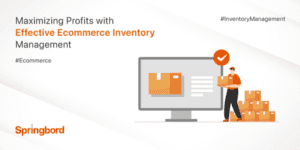In today's digital landscape, influencer marketing has emerged as a powerful tool for brands looking to reach and engage with their target audience. As consumers increasingly seek authentic recommendations and trust the opinions of influencers, businesses have realized the potential of this strategy in maximizing their return on investment (ROI). To fully harness the power of influencer marketing, however, it is essential for brands to have effective tracking and measurement tools in place. These tools enable them to accurately assess the impact of their influencer campaigns, measure ROI, and make data-driven decisions for future success. In this article, we explore the importance of tracking and measurement tools in influencer marketing and how they can help brands achieve their marketing goals.
The Importance of Influencer Marketing ROI
In today's digital age, influencer marketing has become an indispensable tool for brands looking to make a meaningful impact on their target audience. By partnering with influential individuals who have a strong online presence, businesses can amplify their reach, build brand awareness, and drive sales. However, in order to truly gauge the success of influencer marketing campaigns, it is crucial to understand and measure the return on investment (ROI). By evaluating the effectiveness of influencer marketing efforts, businesses can make informed decisions, optimize their strategies, and maximize their ROI.
Understanding the Value of Influencer Marketing
Before delving into the intricacies of tracking and measuring influencer marketing ROI, it's important to first grasp the value that influencer marketing brings to the table. Traditional advertising methods often lack the personal touch that today's consumers crave. The advent of social media has given rise to an era where individuals connect with influencers on a personal level, valuing their opinions and recommendations. By leveraging the power of influencers, brands can tap into the trust and loyalty they have built with their followers, resulting in more authentic and impactful marketing campaigns.
![]()
Exploring the Potential ROI of Influencer Marketing
The potential for ROI in influencer marketing is enormous. The reach and engagement that influencers can generate for a brand can be unparalleled compared to other marketing channels. By strategically collaborating with the right influencers, businesses can tap into niche markets and target specific demographics with precision. Additionally, influencer marketing campaigns have the potential to go viral, generating substantial exposure and brand awareness. By carefully tracking and measuring the impact of these campaigns, businesses can uncover valuable insights and determine the true ROI of their influencer marketing efforts.
Challenges in Tracking and Measuring Influencer Marketing ROI
While the benefits of influencer marketing are clear, tracking and measuring ROI can pose challenges for businesses. Unlike traditional advertising channels, influencer marketing often lacks standardized metrics and measurement methods. Furthermore, accurately attributing conversions to influencer campaigns can be complex, especially when a customer's journey involves multiple touchpoints. Additionally, the ephemeral nature of social media can make it difficult to capture and analyze data in a timely manner. Despite these challenges, with the right measurement tools and strategies, businesses can overcome these hurdles and gain a deeper understanding of their influencer marketing ROI.
![]()
Effective Tracking and Measurement Tools
To accurately track and measure influencer marketing ROI, businesses need to arm themselves with the right tools and strategies. Let's explore some of the most effective tracking and measurement tools available:
Utilizing Unique Discount Codes and Affiliate Links
One popular method for measuring influencer marketing ROI is by utilizing unique discount codes and affiliate links. By providing influencers with personalized discount codes to share with their followers, businesses can directly attribute sales generated through those codes. Similarly, incorporating affiliate links in influencer content allows businesses to track and measure the traffic and conversions generated by each influencer.
Implementing Trackable Links and UTM Parameters
Another effective way to track and measure influencer marketing ROI is by implementing trackable links and UTM parameters. By adding UTM parameters to the links used in influencer campaigns, businesses can identify the source of traffic and conversions attributed to each influencer. Additionally, using link shorteners with tracking capabilities allows for easy monitoring of click-through rates and other engagement metrics associated with influencer content.
Using Conversion Tracking Pixels
Conversion tracking pixels are a powerful tool for measuring influencer marketing ROI. By implementing these pixels on landing pages, businesses can track and attribute conversions to specific influencer campaigns. This data can then be analyzed to gain insights into the effectiveness of each influencer and their content, ultimately informing decisions for future campaigns.
Employing Influencer Marketing Platforms and Software
Influencer marketing platforms and software offer a comprehensive solution for tracking and measuring influencer marketing ROI. These platforms provide businesses with access to a wide range of influencers, as well as built-in tracking features that allow for seamless monitoring of campaign performance. By leveraging these platforms, businesses can streamline their influencer marketing efforts and gain valuable data and metrics to evaluate their ROI.
Utilizing Social Listening Tools
Social listening tools can be invaluable when it comes to tracking and measuring influencer marketing ROI. By monitoring social media conversations regarding influencer campaigns, businesses can gauge sentiment, engagement levels, and overall brand perception. These insights can provide a deeper understanding of the impact of influencer marketing and help quantify its ROI.
Implementing Surveys and Questionnaires
In order to gather direct feedback from consumers and measure the impact of influencer marketing, businesses can implement surveys and questionnaires. By including specific questions about the influence of influencers and their impact on purchasing decisions, businesses can collect valuable data to assess the ROI of their influencer marketing efforts.
Utilizing Unique Discount Codes and Affiliate Links
One method that proves effective in tracking and measuring influencer marketing ROI is utilizing unique discount codes and affiliate links. By providing influencers with personalized discount codes, businesses can track and attribute sales directly to their influencer campaigns. These unique discount codes are exclusive to each influencer, allowing businesses to assess their individual performance and determine the ROI derived from their efforts. Similarly, incorporating affiliate links in influencer content provides a trackable way to measure the traffic and conversions generated by each influencer. By analyzing the performance of these unique discount codes and affiliate links, businesses can gain a comprehensive understanding of the impact of their influencer marketing campaigns.
Implementing Trackable Links and UTM Parameters
Another effective way to track and measure influencer marketing ROI is through the implementation of trackable links and UTM parameters. UTM parameters are tags added to the end of a URL, providing businesses with valuable information about the source of traffic and conversions. By adding UTM parameters to the links used in influencer campaigns, businesses can identify which influencers are driving the most engagement and conversions. Additionally, using link shorteners with tracking capabilities enables businesses to easily monitor click-through rates and other engagement metrics associated with influencer content. By analyzing the data collected from trackable links and UTM parameters, businesses can gain insights into the effectiveness of their influencer marketing efforts and optimize their strategies accordingly.
Using Conversion Tracking Pixels
Conversion tracking pixels are a powerful tool in measuring influencer marketing ROI. By implementing these pixels on landing pages, businesses can track and attribute conversions directly to specific influencer campaigns. Conversion tracking pixels work by placing a small piece of code on a landing page that triggers when a desired action, such as a sale or sign-up, occurs. This data can then be analyzed to understand the impact of each influencer and their content on driving conversions. By examining the conversion data, businesses can assess the ROI of their influencer marketing efforts and make data-driven decisions for future campaigns.
Employing Influencer Marketing Platforms and Software
To streamline the process of tracking and measuring influencer marketing ROI, businesses can leverage influencer marketing platforms and software. These platforms offer a one-stop solution for businesses to connect with influencers, manage campaigns, and track performance. With built-in tracking features, businesses can easily monitor the reach, engagement, and conversions generated by each influencer. Influencer marketing software also provides valuable data and metrics, allowing businesses to assess the ROI of their influencer marketing efforts more effectively. By utilizing these platforms and software, businesses can optimize their influencer marketing strategies and maximize their ROI.
Utilizing Social Listening Tools
Social listening tools are a valuable resource for tracking and measuring influencer marketing ROI. These tools allow businesses to monitor social media conversations regarding influencer campaigns, enabling them to gauge sentiment, engagement metrics, and overall brand perception. By analyzing this data, businesses can gain insights into the effectiveness of their influencer marketing efforts and measure the impact on their target audience. Social listening tools provide a holistic view of campaign performance, allowing businesses to quantify the ROI of influencer marketing and make informed decisions moving forward.
Implementing Surveys and Questionnaires
Surveys and questionnaires are an effective method for collecting direct feedback from consumers and measuring the impact of influencer marketing. By creating surveys that include specific questions about the influence of influencers and their impact on purchasing decisions, businesses can gather valuable insights. Surveys can be distributed to a sample of customers who have been exposed to influencer marketing campaigns, providing quantitative data to assess the ROI of these efforts. By analyzing the survey data, businesses can identify patterns and trends, helping them understand the impact of influencer marketing on their target audience and make informed decisions to optimize ROI.
Tips for Maximizing ROI with Tracking and Measurement Tools
While tracking and measuring influencer marketing ROI is crucial, it is equally important to maximize the ROI with effective strategies. Here are some tips to help businesses make the most of their tracking and measurement tools:
Set Clear Goals and Objectives for Influencer Campaigns
Before embarking on an influencer marketing campaign, it is essential to define clear goals and objectives. By clearly outlining what the business hopes to achieve through the campaign, it becomes easier to track and measure ROI. Whether the goal is to drive sales, increase brand awareness, or boost engagement, having specific metrics in mind allows businesses to align their tracking and measurement efforts accordingly.
Choose Tracking and Measurement Tools that Align with Your Goals
With a multitude of tracking and measurement tools available, it is important to select the ones that align with the goals and objectives of the influencer campaign. Different tools offer unique features and metrics, so businesses should choose ones that provide the necessary insights to measure ROI effectively. Whether it is discount codes, trackable links, conversion tracking pixels, or influencer marketing platforms, selecting the right tools is key to obtaining accurate and meaningful data.
Regularly Monitor and Analyze the Collected Data
Tracking and measuring influencer marketing ROI is an ongoing process. It is crucial to regularly monitor the data collected from tracking and measurement tools to assess the performance of influencers and campaigns. By tracking metrics such as reach, engagement, conversions, and sales on a regular basis, businesses can identify trends and make informed decisions to optimize their influencer marketing strategies.
Identify Patterns and Insights to Optimize Future Influencer Campaigns
Analyzing the collected data allows businesses to identify patterns and insights that can inform future influencer campaigns. By identifying which influencers, content types, or platforms consistently generate high engagement and conversions, businesses can optimize their strategies accordingly. This iterative process ensures that influencer marketing efforts continuously evolve and maximize ROI.
Continuously Communicate and Collaborate with Influencers for Better Tracking
Effective communication and collaboration with influencers can greatly enhance tracking and measurement efforts. By maintaining an open dialogue, businesses can ensure that influencers are using the necessary tracking mechanisms, such as unique discount codes or trackable links, to accurately measure their impact. Regular communication also allows for ongoing feedback and optimization, further enhancing the tracking and measurement of influencer marketing ROI.
In conclusion, tracking and measuring influencer marketing ROI is essential for businesses looking to make the most of their influencer campaigns. By utilizing effective tracking and measurement tools, such as unique discount codes, trackable links, conversion tracking pixels, influencer marketing platforms, social listening tools, and surveys, businesses can gain valuable insights into the success and impact of their influencer marketing efforts. By setting clear goals, choosing the right tools, regularly monitoring data, identifying patterns, and collaborating with influencers, businesses can maximize their ROI and achieve long-term success in influencer marketing.








